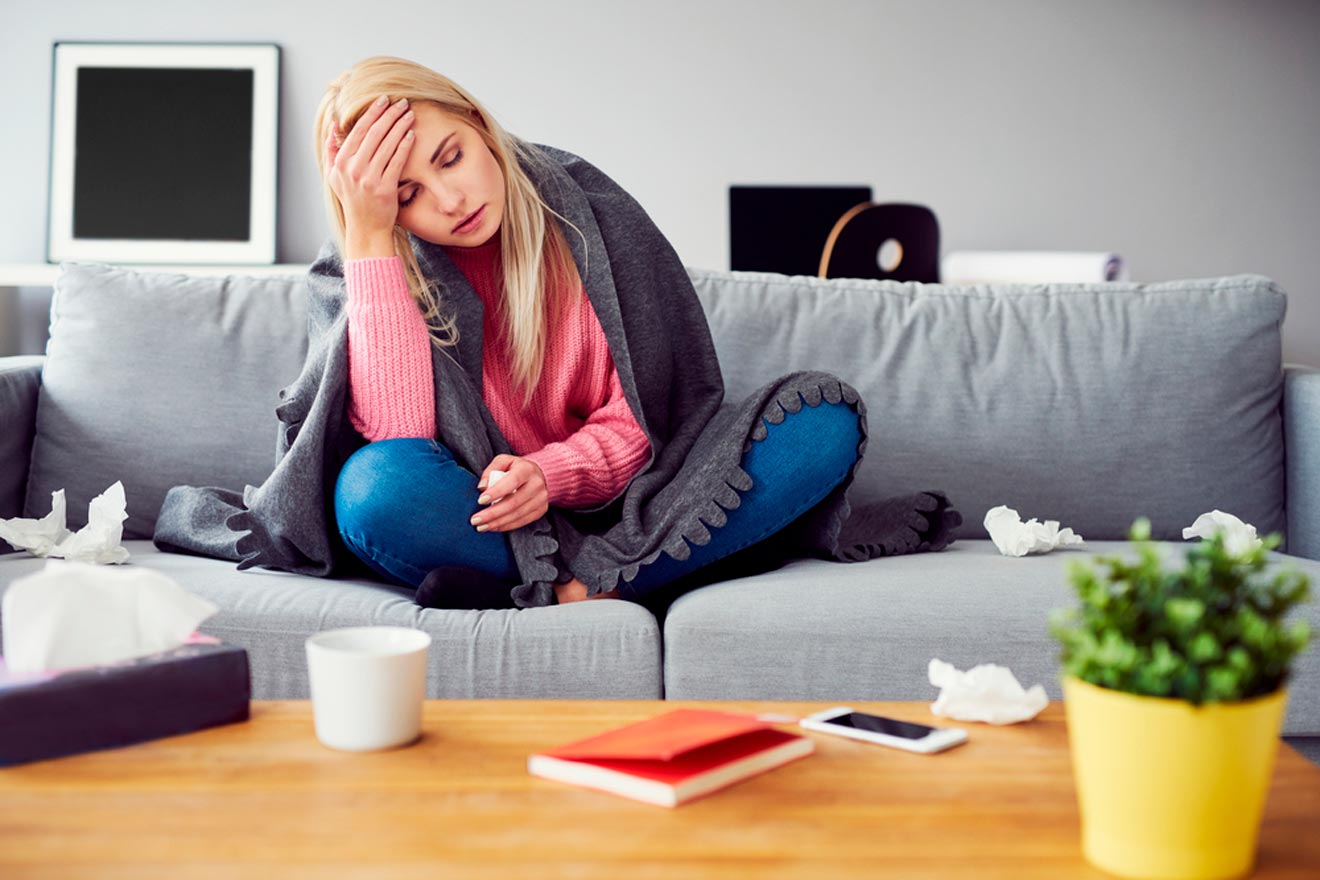
Hello traveler, worried about getting sick on vacation? I feel you! Even as a seasoned traveler who’s used to changing climates, I sometimes catch a cold or a stomach flu during (or after) my travels.
Luckily, I’ve been on the road long enough to understand the little tricks to help prevent getting sick or get better fast in case I do catch something. And today, I share those tips with you!
I’ll also share some of my personal experiences and those of my fellow colleagues and friends so you can learn from our examples!
DISCLAIMER: The following tips are not replacements for professional medical advice. They are just a personal collection of practices I found helpful during my travels. If you’re traveling with a chronic condition or are concerned you may have one, consult a health professional for personalized advice.
Contents
Things to do to avoid getting sick on vacation
Prevention is the best medicine! Let’s start with practical (and super easy!) things you can do to prevent getting sick on your trip.
1. Research the health situation in your destination
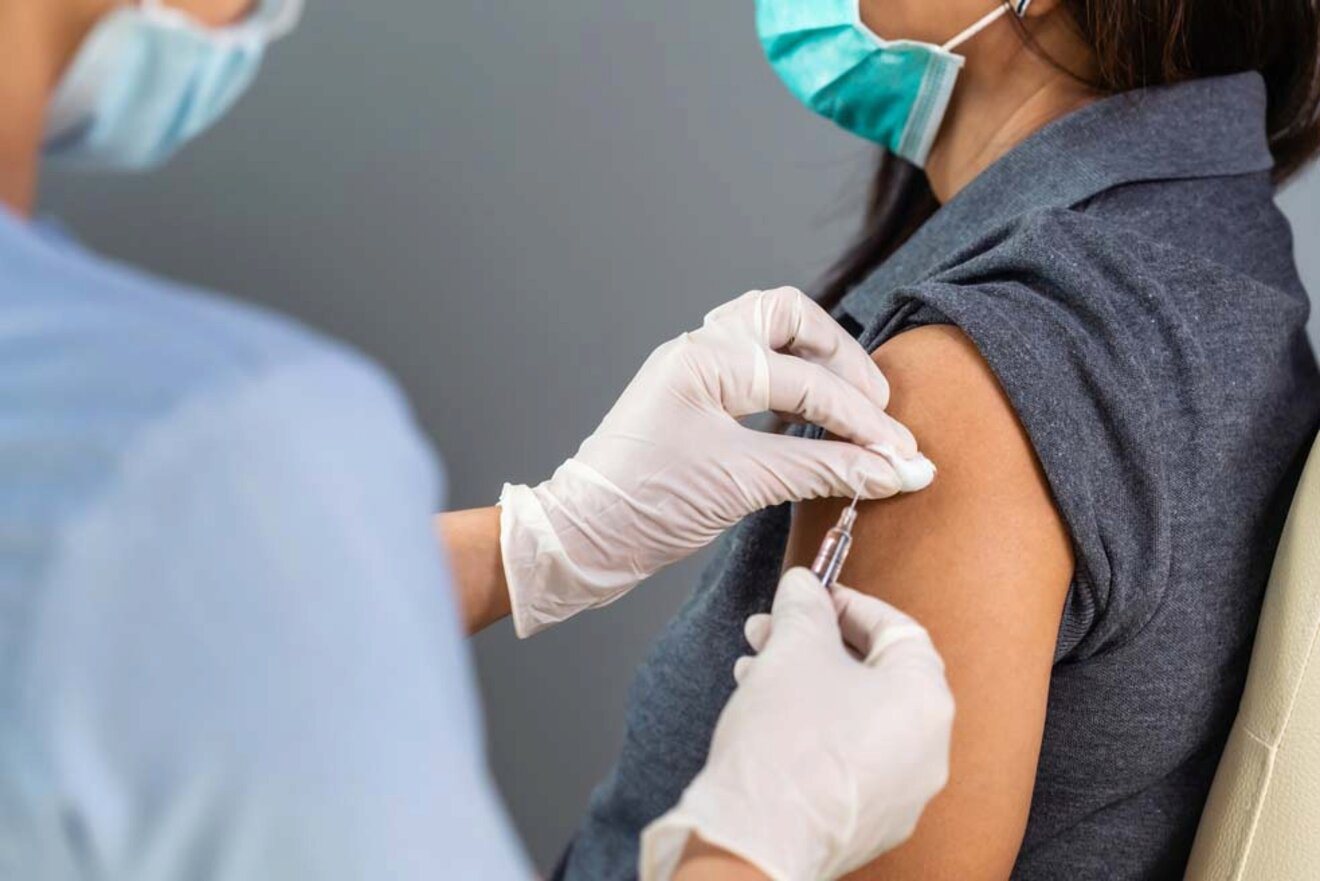
Even before applying for a visa or buying plane tickets, check travel advisory for health and sanitary conditions in the country you’re traveling to. See whether you’re required to take any vaccines.
I know many places in Africa and South America require a yellow fever vaccine before you can enter some natural parks or even the country.
Also, research the water and food quality in the country; this is super important so you know what to expect and how to behave on the trip! My husband once got the worst stomach flu after a trip to India (if you know anyone who’s been to India, they’re likely to have the same story) due to the poor water situation in the country.
Even our Indian friend who lives in Russia told us every time he and his family visit their relatives in India, he packs one suitcase full of bottled water and has his daughters drink it before they gradually get used to local water.
Most of Asia, Central & South America, and Africa have unsafe tap water to drink for travelers. Avoid tap water or drinks with ice (this one is crucial!) while traveling to these countries.
Here’s a quick list of items that could help you not get sick depending on where you travel:
- Mosquito and bug repellants (and insect bite relief) for humid climates
- Water purification tablets or portable filters for where there are drinking water issues
- Sun protection (sunscreen, after-sun cream, sunglasses, a hat) for hot climates
- Antihistamines and itching relief creams if you’re prone to allergies
- Face masks for places with poor air quality
- Probiotics and anti-diarrhea medication for gut health
2. Practice good hygiene
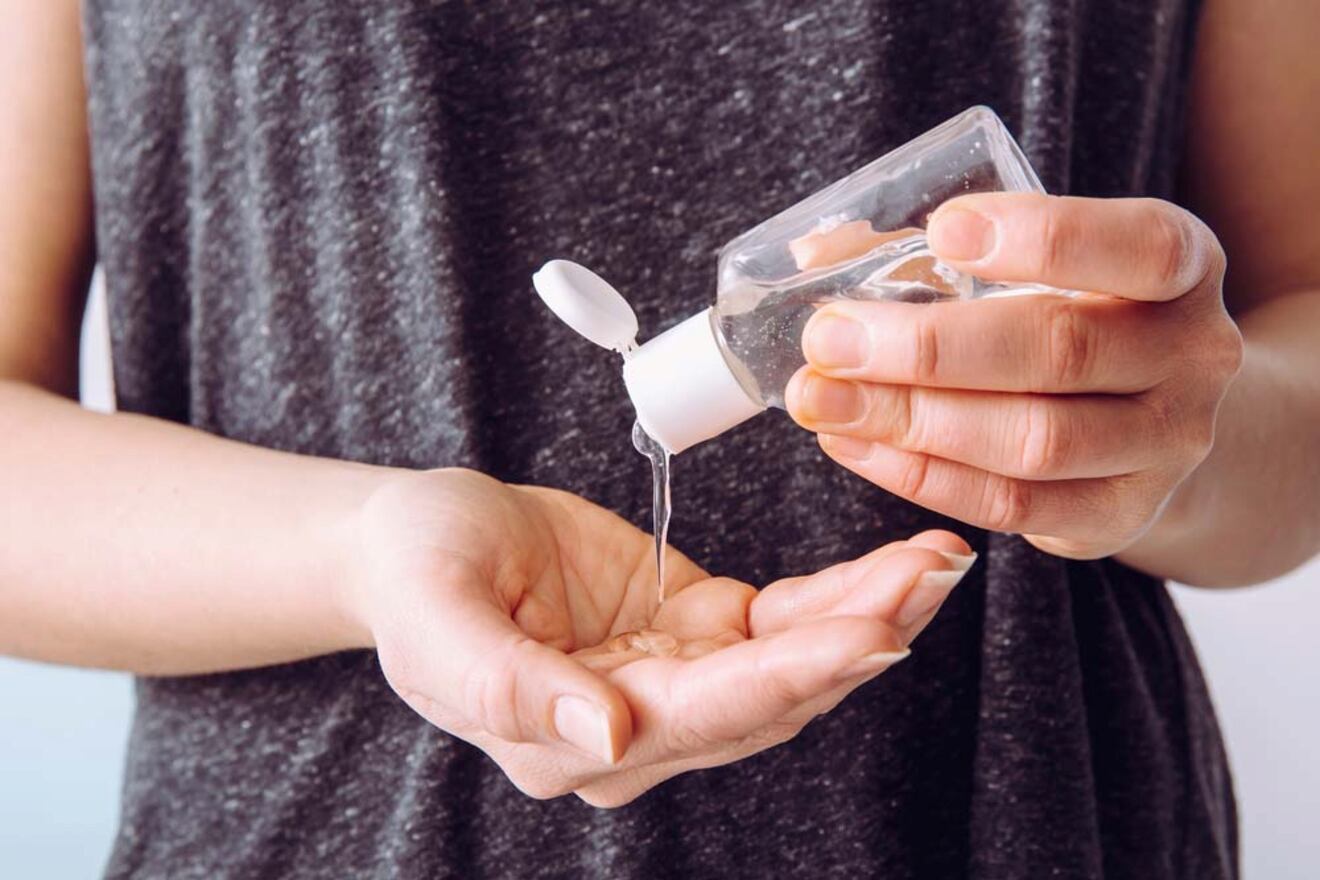
You know that proverb that says hygiene is two thirds of health? Well, this is even more accurate when you’re traveling!
Whether you realize it or not, your body is stressed whenever you’re on a trip. You move more, your senses are more engaged, and you’re surrounded by new viruses and bacteria invisible to the naked eye but very much detectable by your immune system.
Here are 7 quick tips to keep your personal hygiene in order when traveling:
- Wash your hands regularly, especially after public transport, using public restrooms (exercise minimal touching of surfaces while there), or visiting crowded areas.
- Have a portable hand sanitizer attached to your bag for easy access, or carry antibacterial wipes.
- Shower and clean your nails regularly.
- Don’t sit on public toilet seats.
- Don’t share food or drinks.
- Have an antiseptic nasal spray at hand.
- Wear medical-grade masks (N95) on the plane or in crowded places.
3. Drink plenty of water (with electrolytes)
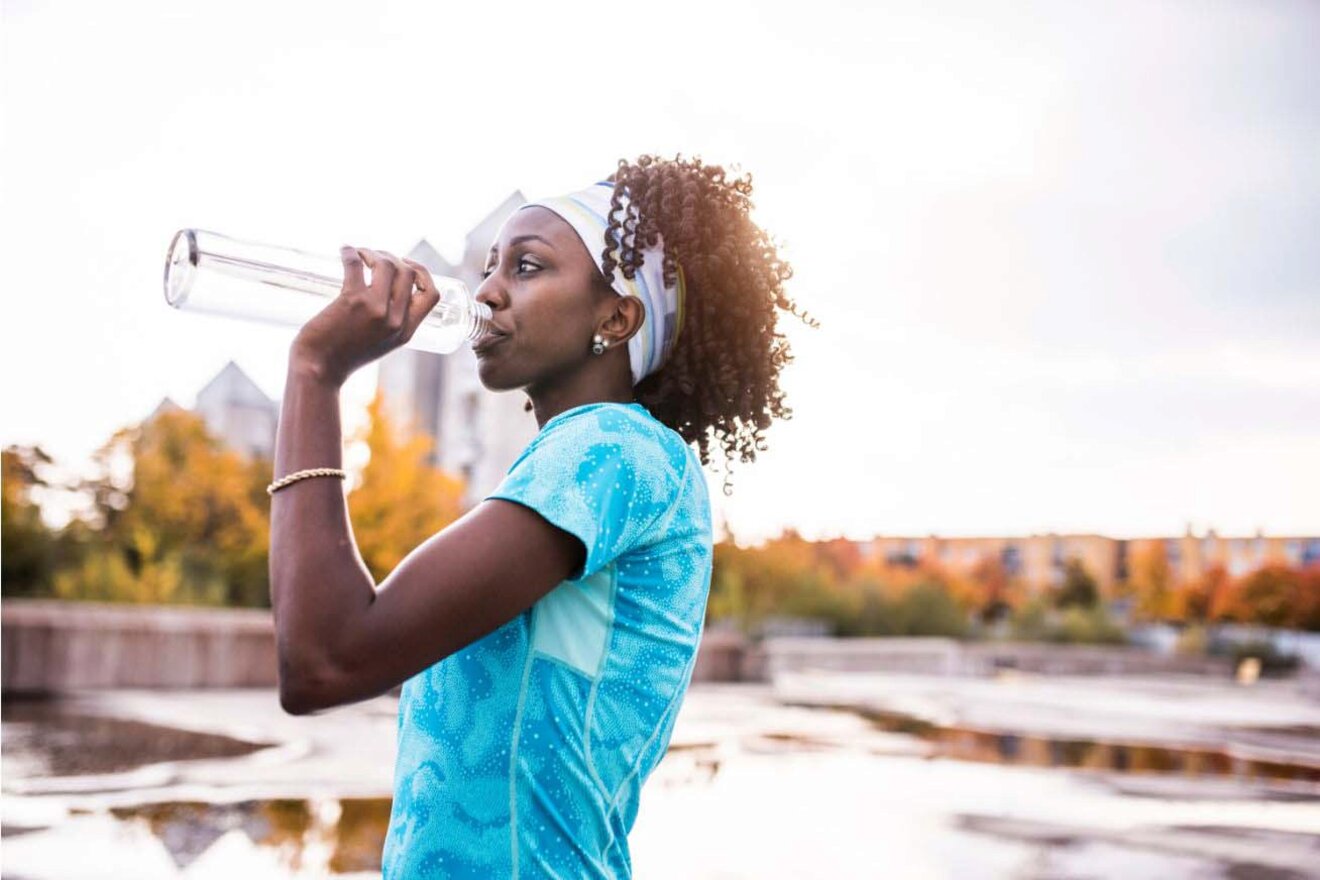
I could not stress the importance of proper hydration to prevent getting sick on vacation. I’ve been traveling for years with frequent headaches after 1 or 2 days on a trip, thinking, “I just got tired.”
But the thing is, I was constantly dehydrated. I was guilty of not drinking enough water in general in my daily life, but once I went on travels, I quickly began to feel the consequences. Especially when I sweated a lot!
I now drink at least 2 L of water every day and get an electrolyte powder solution once per day, and the headaches have seriously disappeared!
So remember to always have a bottle of water at hand whenever you’re traveling. Drink even more if you’re on a long flight or in a really hot place.
4. Eat healthy foods

It’s super important to fuel your body with the right nutrients when you’re traveling! Try to avoid dry, processed foods and rather eat fresh fruits, vegetables, and plenty of grains and protein.
Healthy food choices will help you feel more energized and also lower the chances of getting dehydrated.
Avoid drinking too much alcohol and caffeine as well, especially if you plan an active vacation!
5. Don’t eat in sketchy places
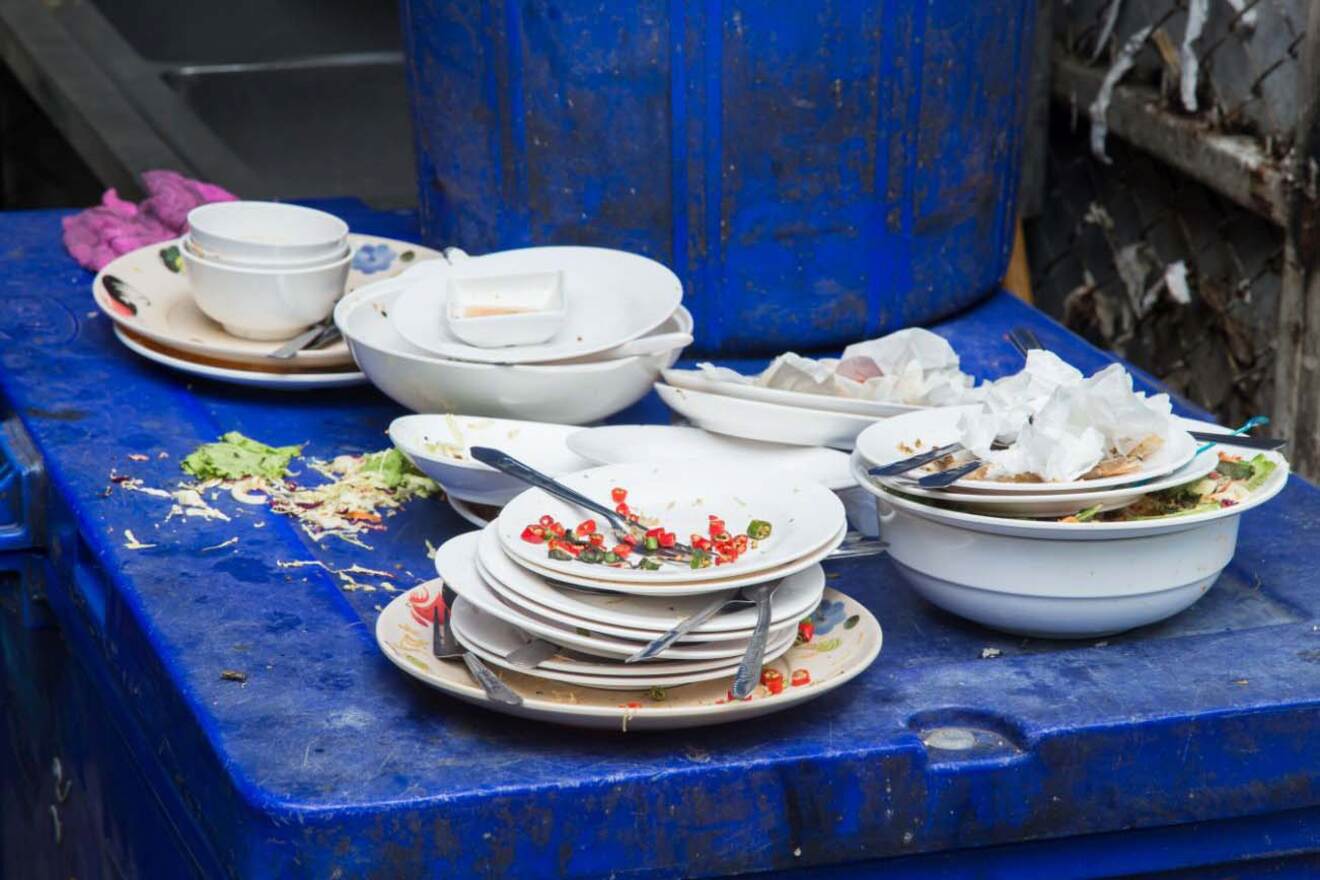
I don’t keep the official statistics, but I’m pretty sure that at least 90% of the times I got sick on vacation could be traced back to the foods I ate. When I’m on the road, I’m super curious about local foods that I often forget to keep an eye on the actual quality of the food.
But there are a few easy tips to help you avoid bad places to eat:
- Carefully choose places to eat by reading online reviews about them. If they have a poor rating or previous complaints of food poisoning, skip them.
- Be mindful about choosing stalls in food markets. Make sure the area surrounding them is clean, there’s no trash around, and the people working with food are wearing gloves.
- Avoid restaurants located in bad areas (dirty, unsafe, or known for bad reputation).
- If you have doubts about the restaurant’s cleanliness, or if something seems off, skip it. Trust your intuition!
I always pay special attention to street food because these are usually the places with the lowest hygiene standards. So again, only buy food in places that have a good reputation!
PRO TIP: If you sit in a restaurant and they hand you a dirty menu, the place most likely has poor hygiene. Do yourself a favor and leave it before ordering your food!
6. Don’t stress too much
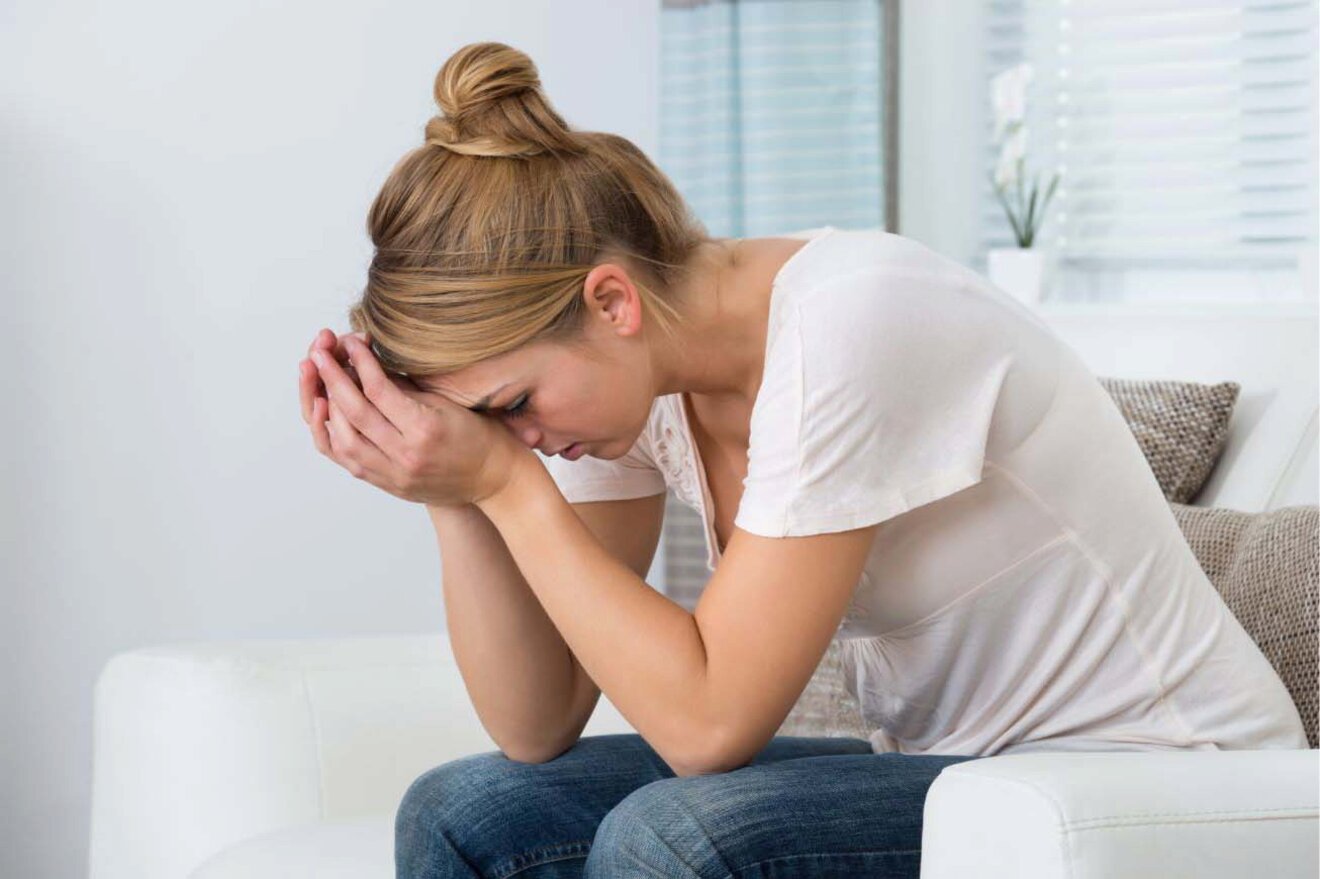
Stress is one of the most important contributors to getting sick. When you get stressed, your immunity weakens, and your body is more prone to illness.
While planning a trip and getting ready for departure can be stressful per se, it’s important to work your way around and lower the stressors.
Here are a few things that always help me stress less before the trip:
- Have a to-do list with everything that needs to be done before the trip.
- Buy tickets and book accommodation in advance so everything is ready before departure.
- Plan activities ahead and don’t leave any planning for the very last day prior to departure.
- Finish packing early or by the time you’d normally go to bed so you can get a good night’s sleep before departure.
- Get a workout in (or practice another activity that makes you relaxed) when you start to feel nervous about the trip. Doing yoga when traveling is a great way to reduce stress!
Travel anxiety is real, and it affects many people. My dear colleague Victoria has created an article about the topic where she shared 17 practical tips to help be at ease when it’s time to travel, and I wholeheartedly recommend it for further reading:
7. Try to keep the same sleep schedule as at home
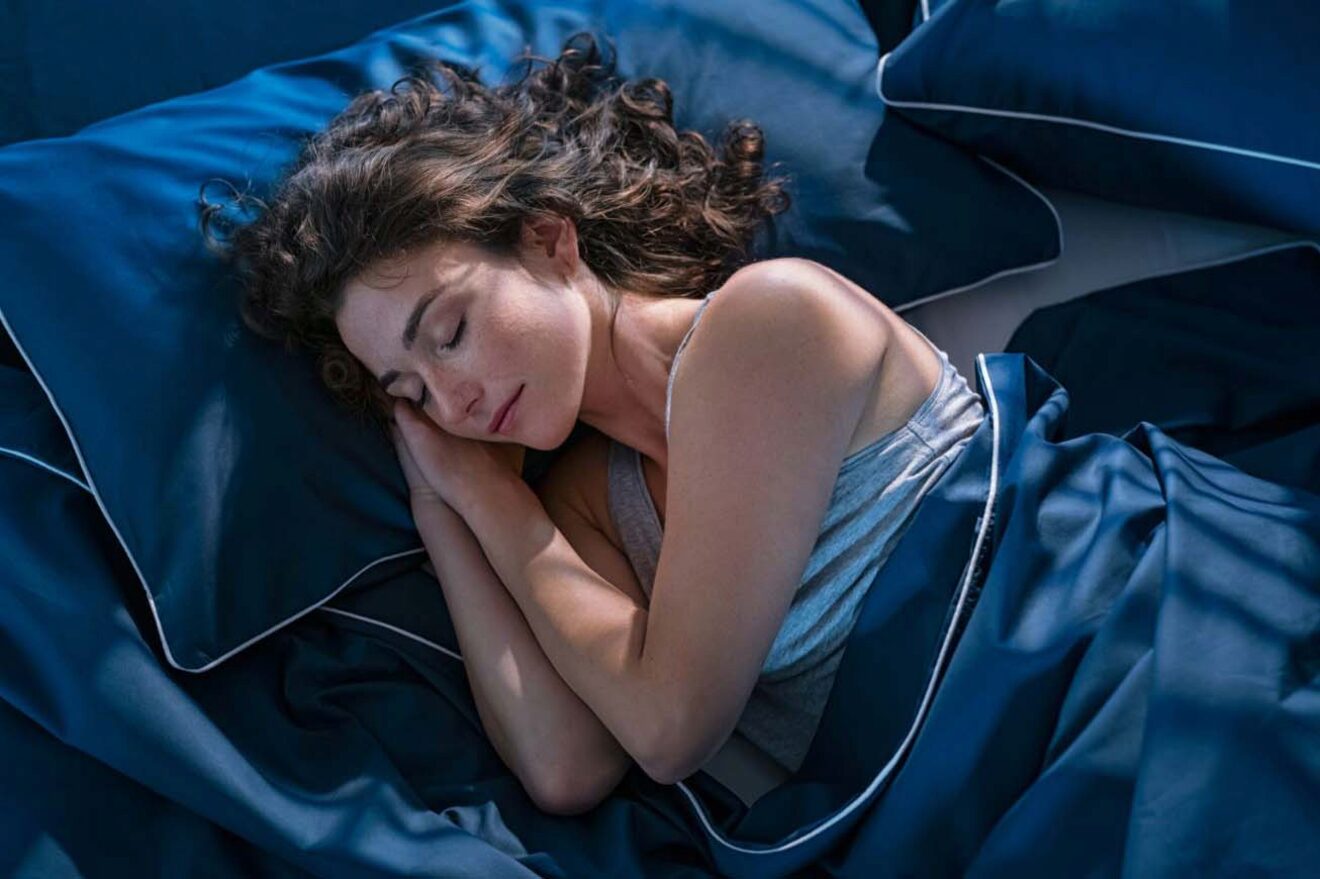
Sleep is probably even more important than stress when it comes to health. If you get too little sleep while being extra active on your travels, chances are, your body will become tired really quickly. And that means your immunity will weaken.
I noticed that whenever I spend 2 or more nights with very little sleep on my travels, I become far less attentive, lose interest in doing things in general, and just feel exhausted all the time. And by the time I’m back home, I’m already sick.
So don’t be like me and go to sleep at the same time as you normally would at home! Prioritizing rest on your trips is so important because it not only gives you the energy to continue but also helps keep your immunity in shape!
8. Have a buffer day after the trip

This one may be the hardest to accomplish, but it can definitely lower the chances of getting sick after vacation.
I often get sick after the trip rather than during. Now that I think about it, it could be related to the fact that I almost never get time to ease out of the vacation and rewind.
It’s always about work and getting things done the very next day when I really just want to stay in bed and recharge my batteries. But once I got back from vacation to Jordan and had one more day off before having to go back to work, I remember feeling so good about it!
We arrived late at night after spending a whole day on the road, and all I wanted was to get the much-needed rest without alarms or obligations the next morning. It all worked out so well that now I try to implement this tactic every time I travel!
So now I can proudly say that having a buffer day (just 1 will be enough) after your trip and before returning to work can do wonders! I know this may take 1 day off of your trip, but if you want to prioritize your health and lower the chances of getting sick after vacation, you definitely won’t regret it!
9. Listen to your body
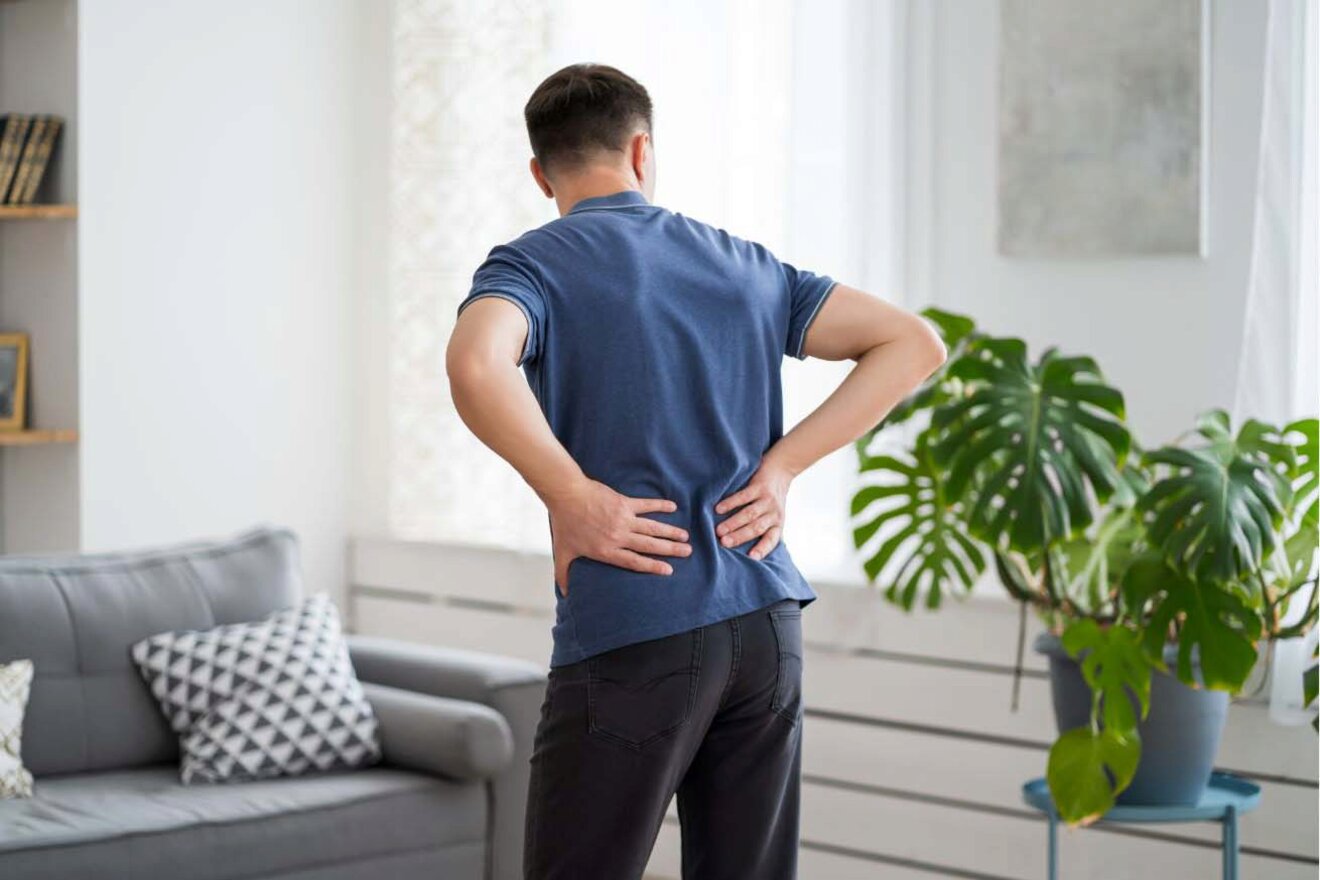
I mentioned before that you should follow your intuition when choosing a place to eat (if it feels off, too dirty, or unsafe, leave it). But really, your intuition and your body are your best friends throughout the trip when it comes to staying safe and healthy. Listening to them is a must!
If your legs and spine are killing you after walking 15,000 steps in the morning and afternoon, it’s a sign to take it easy in the evening. If you have a headache, it’s your sign to drink water or unwind in a café or your hotel room.
Whatever signals your body sends your way, listen and do in its favor! Because this is the best way to prevent getting sick on the trip!
What to do if you get sick on vacation
We can do everything we can to prevent getting sick, but little enemy germs or viruses can still make their way into our system. But there’s a solution for everything!
Here’s how to deal with getting sick on the road:
1. Take medication to relieve symptoms
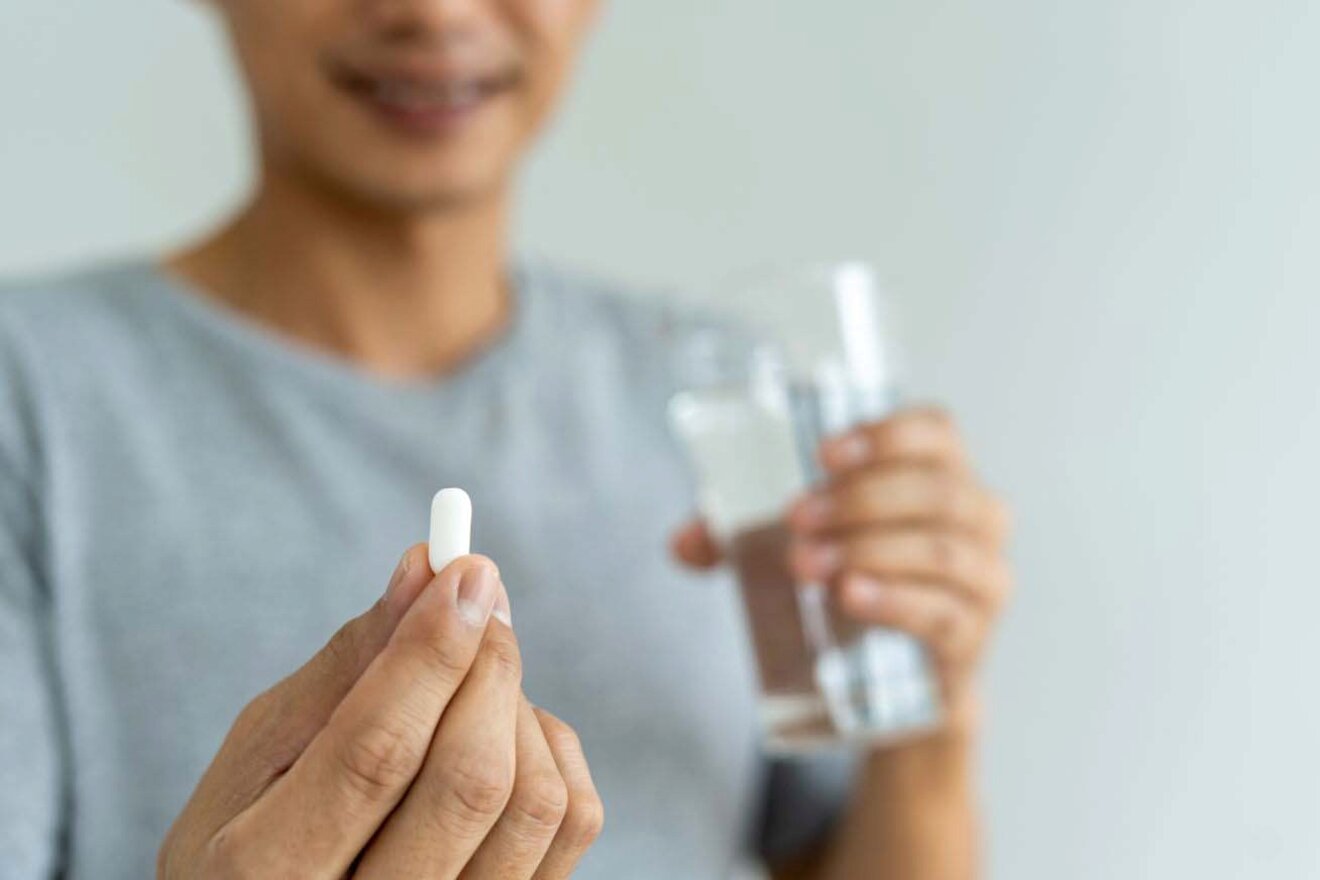
Chances are, if you catch a cold while abroad, it’s nothing serious, and you can fight it back by taking over the counter medication.
I’ve always used a natural propolis spray (something like this one) and quickly sprayed that in my throat whenever the first symptoms appear. I also pop a vitamin C tablet I try to always have at hand just to give me an extra boost. Also, for headaches, I usually take ibuprofen, but you can take whichever painkiller you know works best for you.
You can apply these quick remedies immediately as the symptoms appear. Most of the time, you’ll be able to continue your trip with a full battery in no time.
2. Get tons of rest
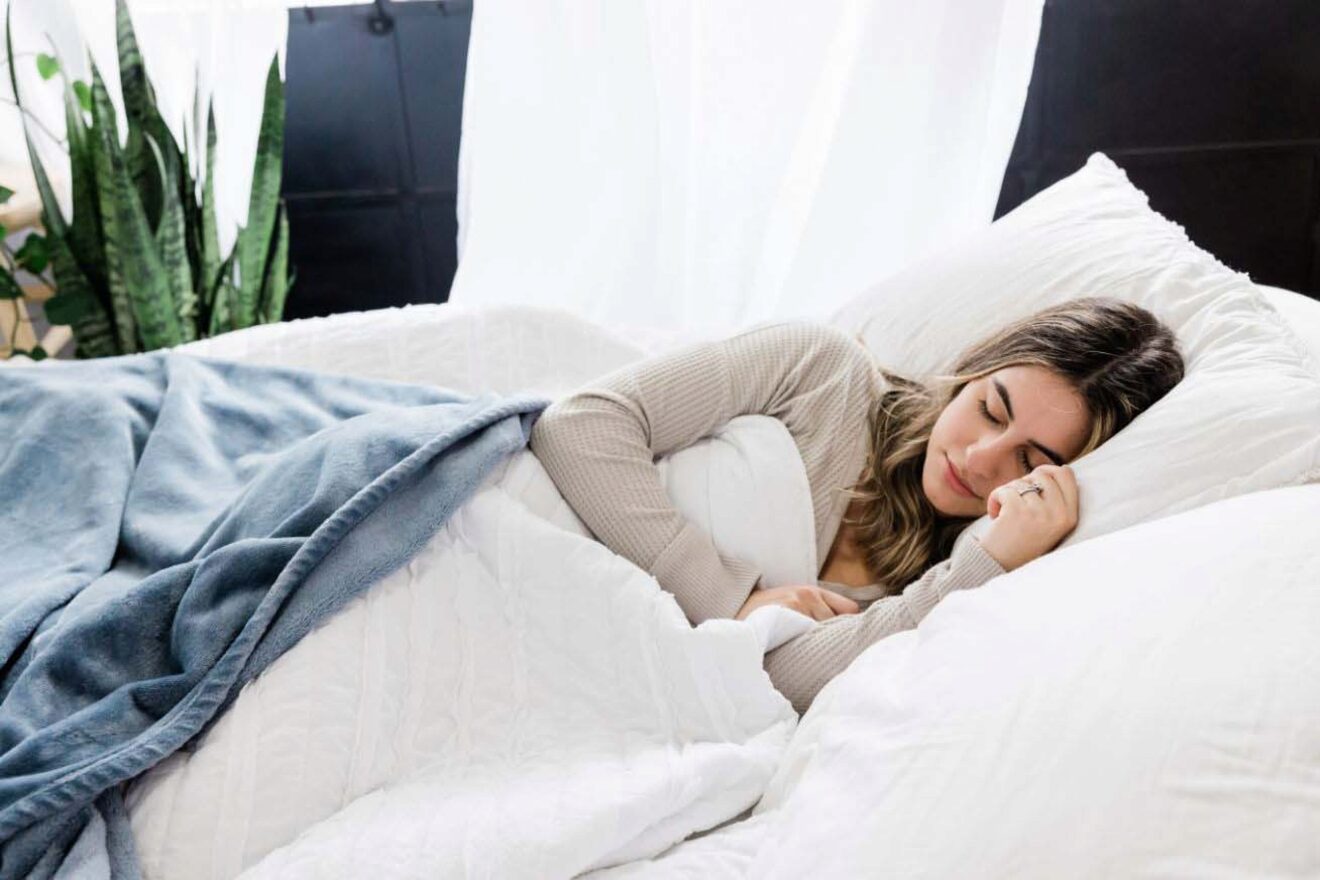
But if you start to feel really tired, the cold or virus makes you drowsy, you have body aches, or you just don’t feel well, make sure to rest!
I tried to push myself so many times because, come on, I’m on vacation, I didn’t come here to lay in bed. But by doing this, I usually end up with much worse symptoms, a fever, and full-scale sickness.
If your body is fighting a virus on the inside and shows you signs it needs to rest – listen to it because it really needs those few extra hours in bed, and the fight will be over much faster!
3. Contact your travel insurance
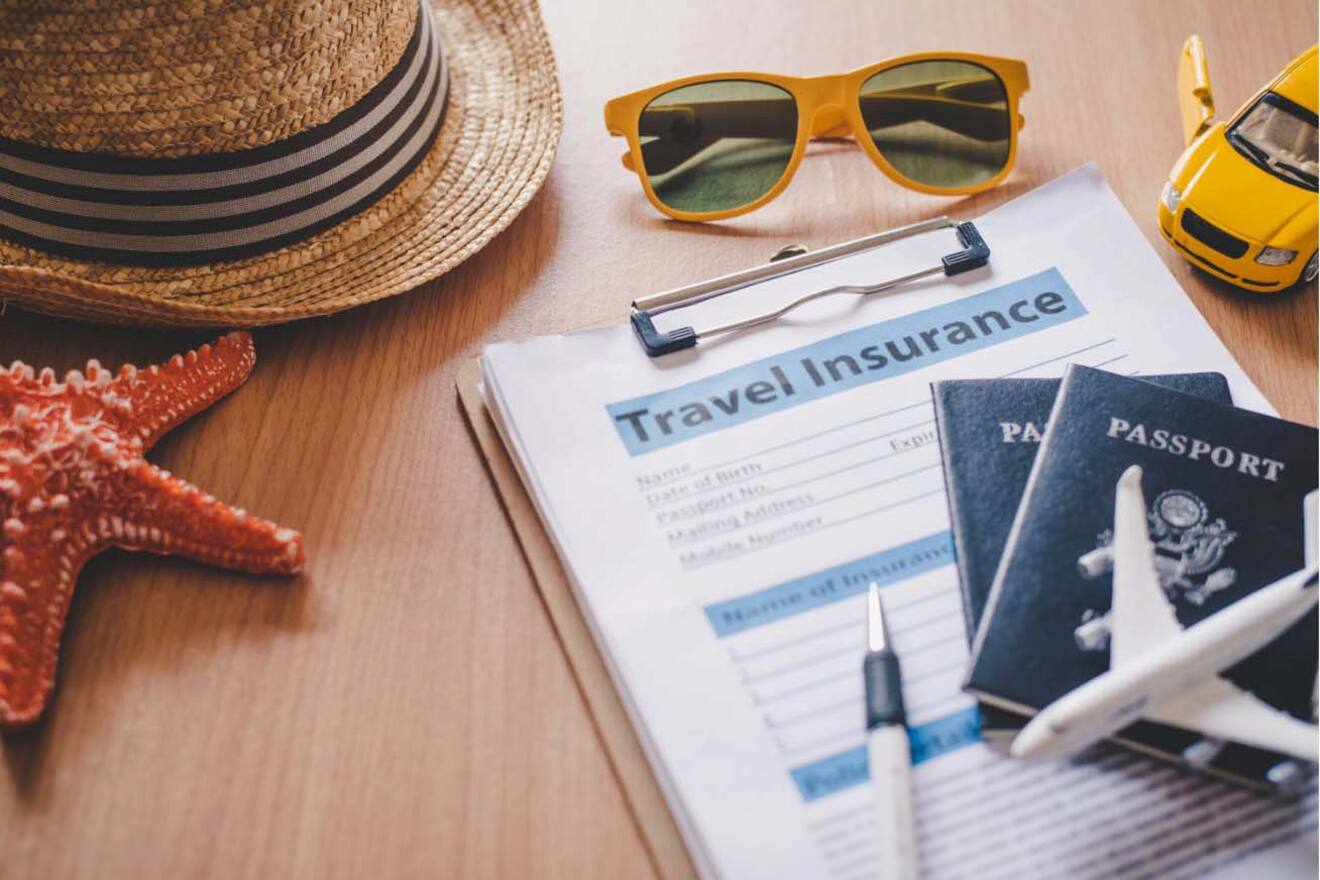
Unfortunately, not all sicknesses during travel are mild. If your symptoms persist or you feel worse, make sure to contact your travel insurance. Of course, this means you should have already picked good travel insurance (I like SafetyWing) before your trip!
I once got sick while traveling abroad and got this horrible fever with chills and the worst headache of my life. When the quick test showed me it was COVID-19, I panicked and called the travel insurance company.
They immediately paired me with a nearby clinic that treated foreigners, so we drove there (it was a short, 15-minute ride). The staff at the clinic had me checked and provided all the medicine I needed, and later (it did take a few weeks), my insurance reimbursed me for all the expenses.
So whenever you get sick or in an accident during your travels, your insurance company will have your back to provide you with useful information, help you book an appointment, or even just advise on proper ways to recover.
4. Quarantine yourself if you think it’s contagious
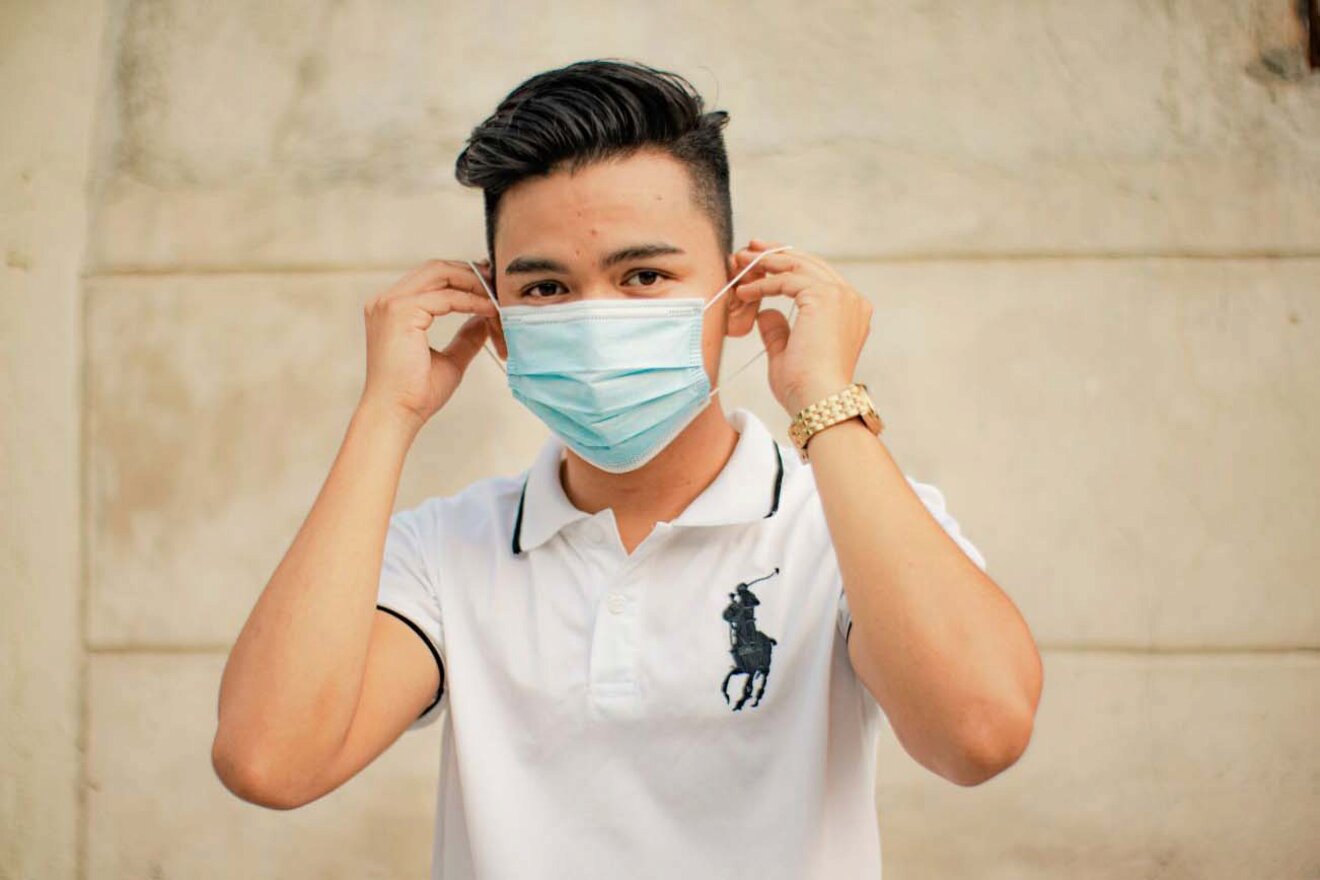
Getting sick with the flu (or a stomach bug) on a trip is horrible enough, but just imagine how bad it would be to have both you and your partner or friend sick. So, it’s best to quarantine yourself, or at least wear a mask, if you believe you have caught a virus.
Better be safe than sorry!
5. Check your credit card for complimentary medical insurance
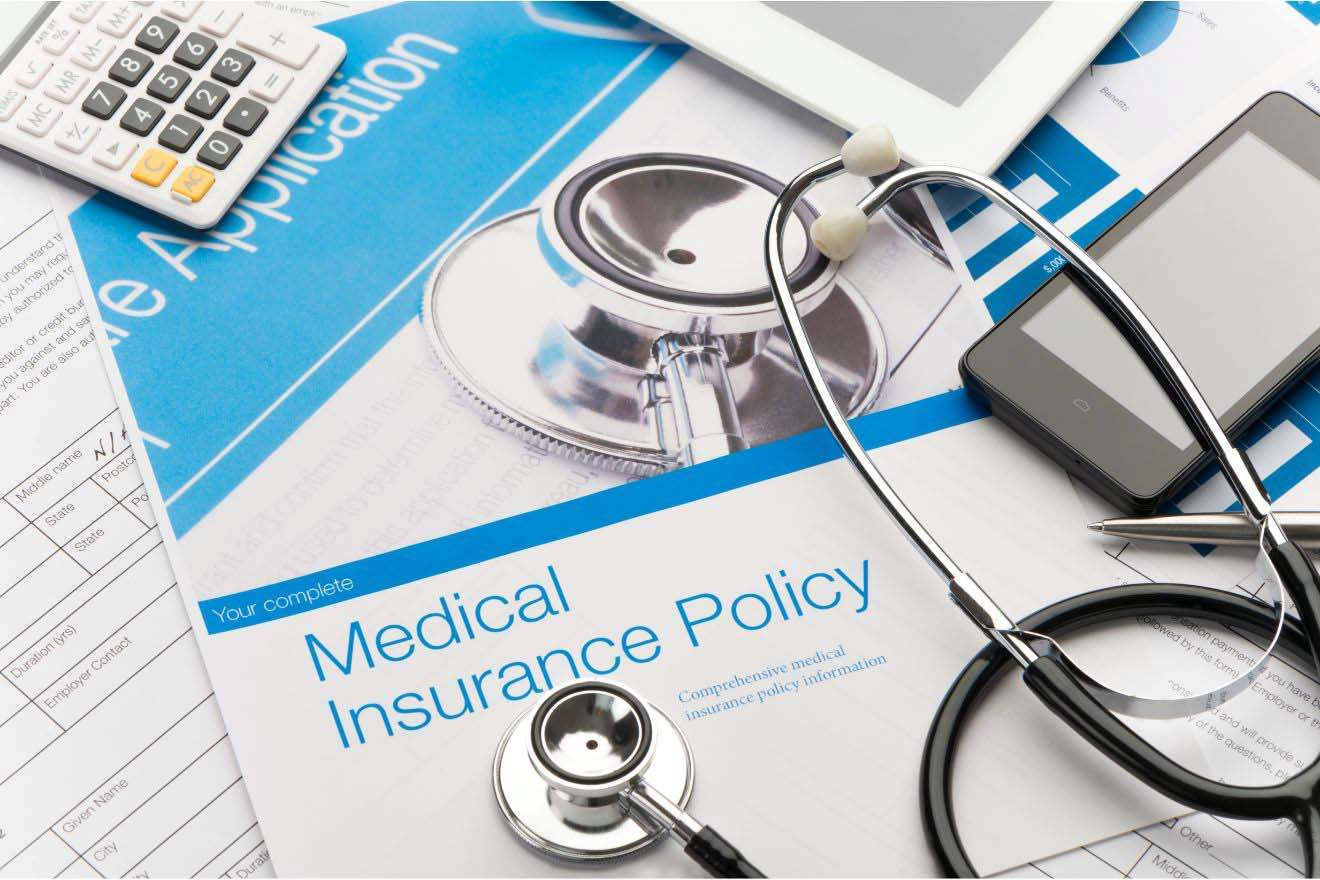
Do you have a travel credit card like Chase Freedom, Chase Sapphire, or similar? They may help with complimentary insurance!
For example, the Chase Sapphire Reserve was voted by Forbes for having the best travel insurance benefits, including US$2,500 in medical insurance and up to US$50 deductible if you paid for the trip using the card.
If you’re a frequent traveler who often gets sick abroad, these travel cards can help you save extra money when you most need it!
FAQs about getting sick on vacation
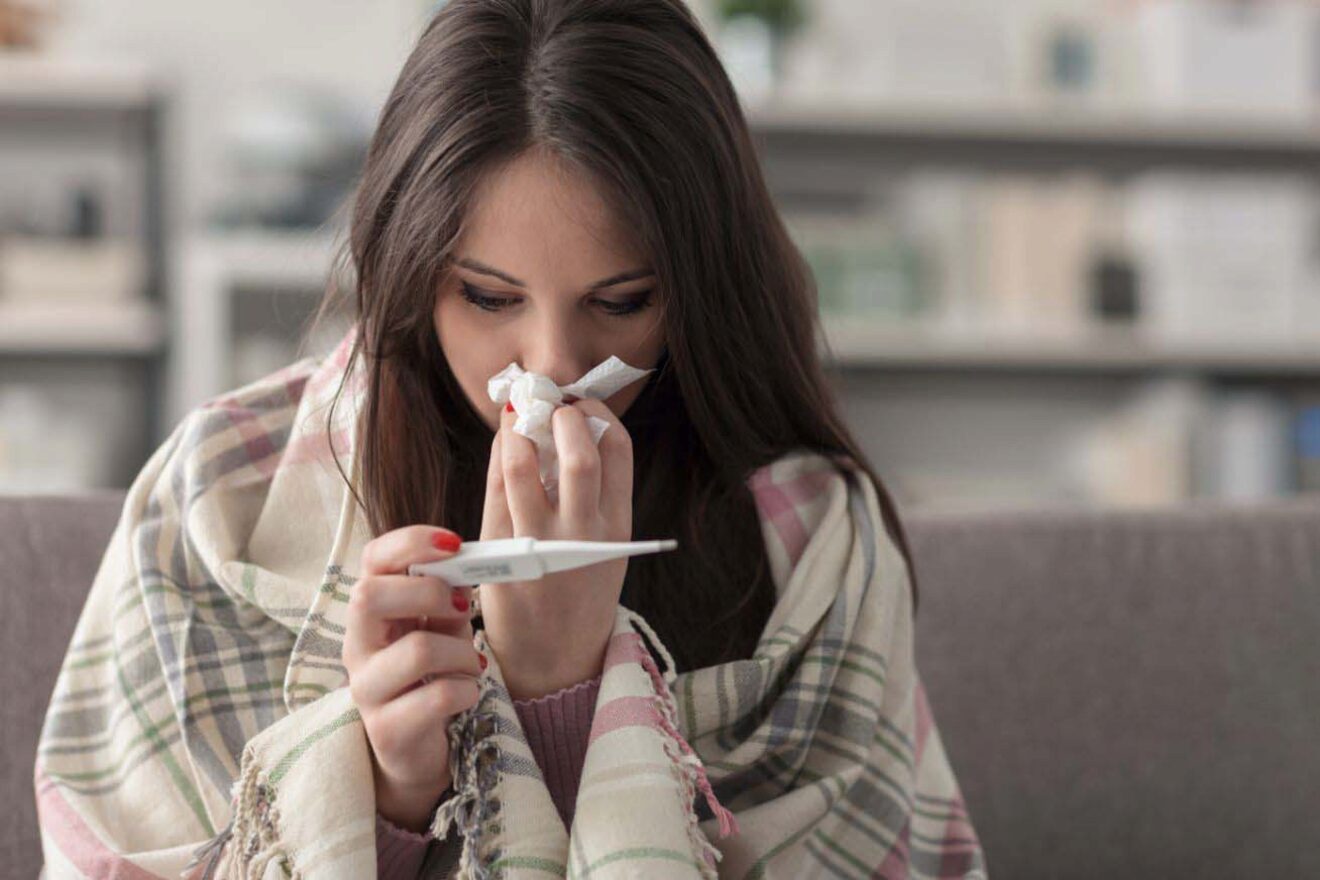
🤧 Why do I always get sick on vacation?
If you’re always sick on vacation, it may mean the pace of your trip is too hard on your body and is weakening your immunity. Try to take it easy, prioritize rest, and, if necessary, have a daily multivitamin shot.
💆♀️ Why do I feel tired after vacation?
It’s normal to feel tired after vacation. Your body was practically working extra hours to keep you fresh and going, and after the “extra work” is done, it’ll want time to recharge. That’s why it’s super important to have a good rest after your trip before you’re back to your daily activities.
🤒 How to deal with a cold on vacation?
Have congestion drops, honey throat spray, or other remedies you normally use when getting a cold at hand. Contact your travel insurance if it doesn’t improve in a few days, or you experience strong symptoms.
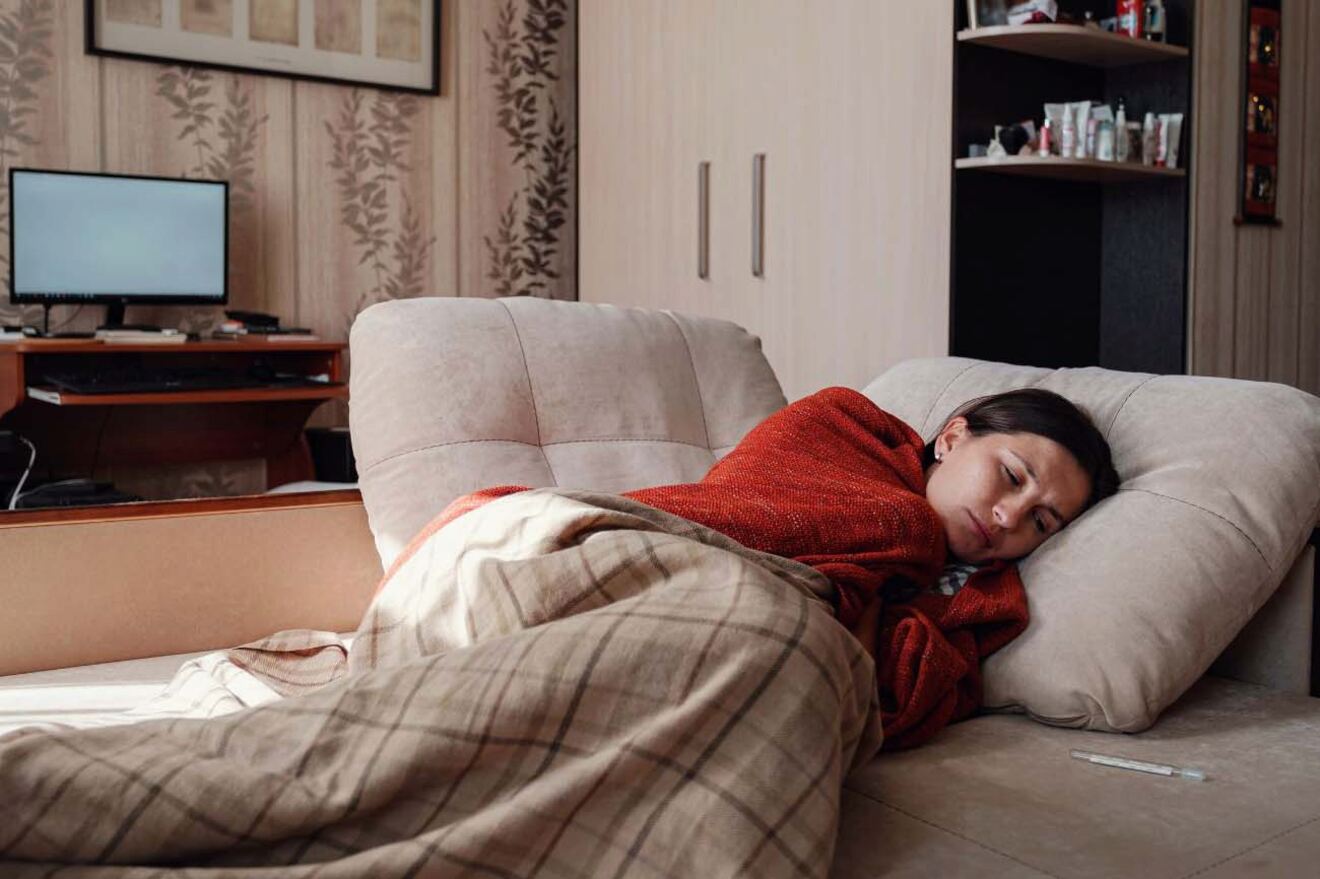
That’s it, dear reader! In this article, I shared some tips on how to avoid getting sick on vacation and what to do if you do! I hope you got to learn something new today!
While I’m not a medical professional, I’ve taken far too many road trips, flights, and train rides to learn from my own experience and understand what gets you sick more often.
To wrap up, here are 2 of the things I always do (or bring along) to help me stay healthy:
- I bring small electrolyte packs and drink one per day while I’m on the road to avoid dehydration.
- I only eat in places with good reputations to avoid catching stomach bugs.
What tip from the article was most useful for you? Did I forget to mention something? Feel free to share your experience in the comments below!
Be well,
Darija
Pin it for later!
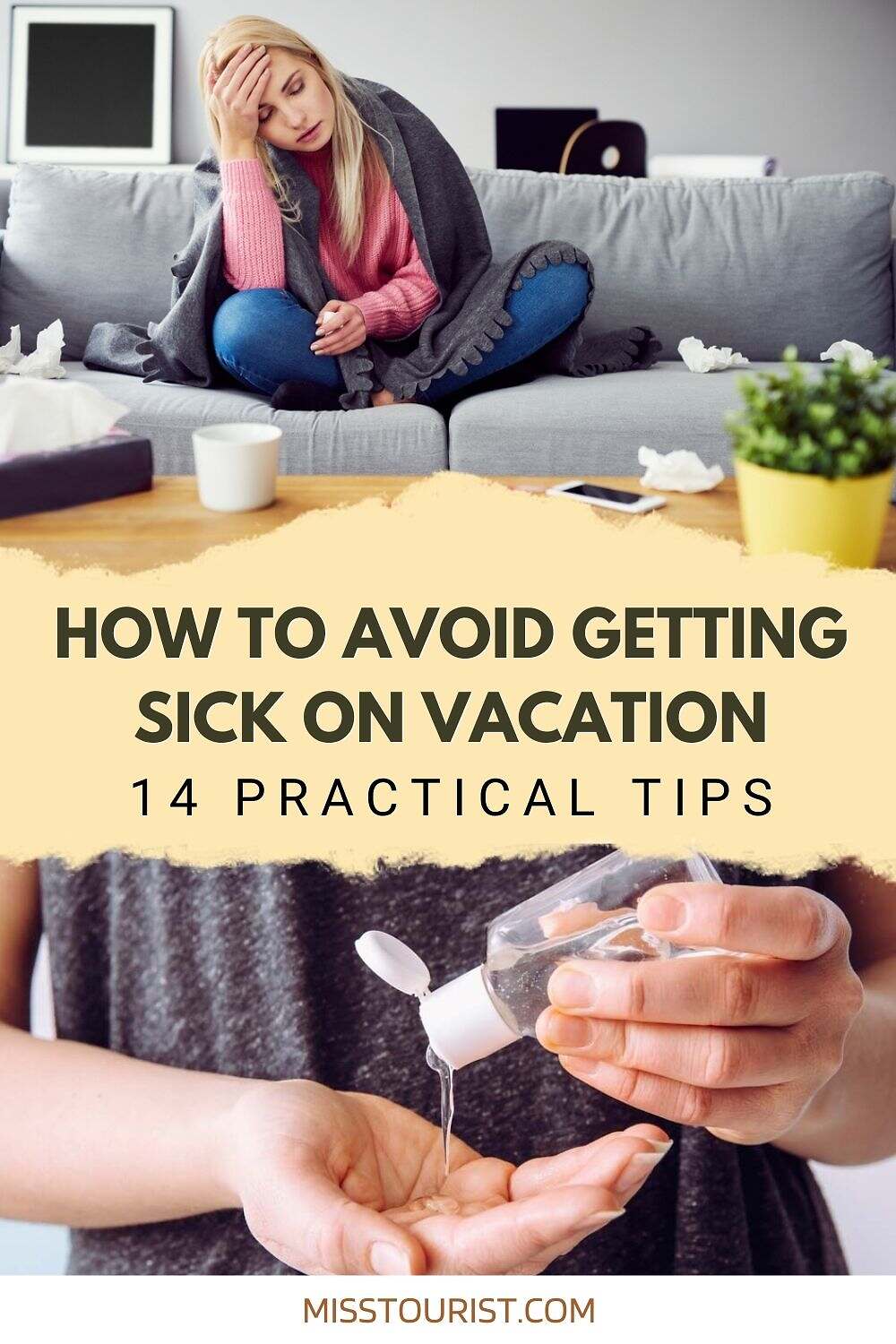
Pin it for later!
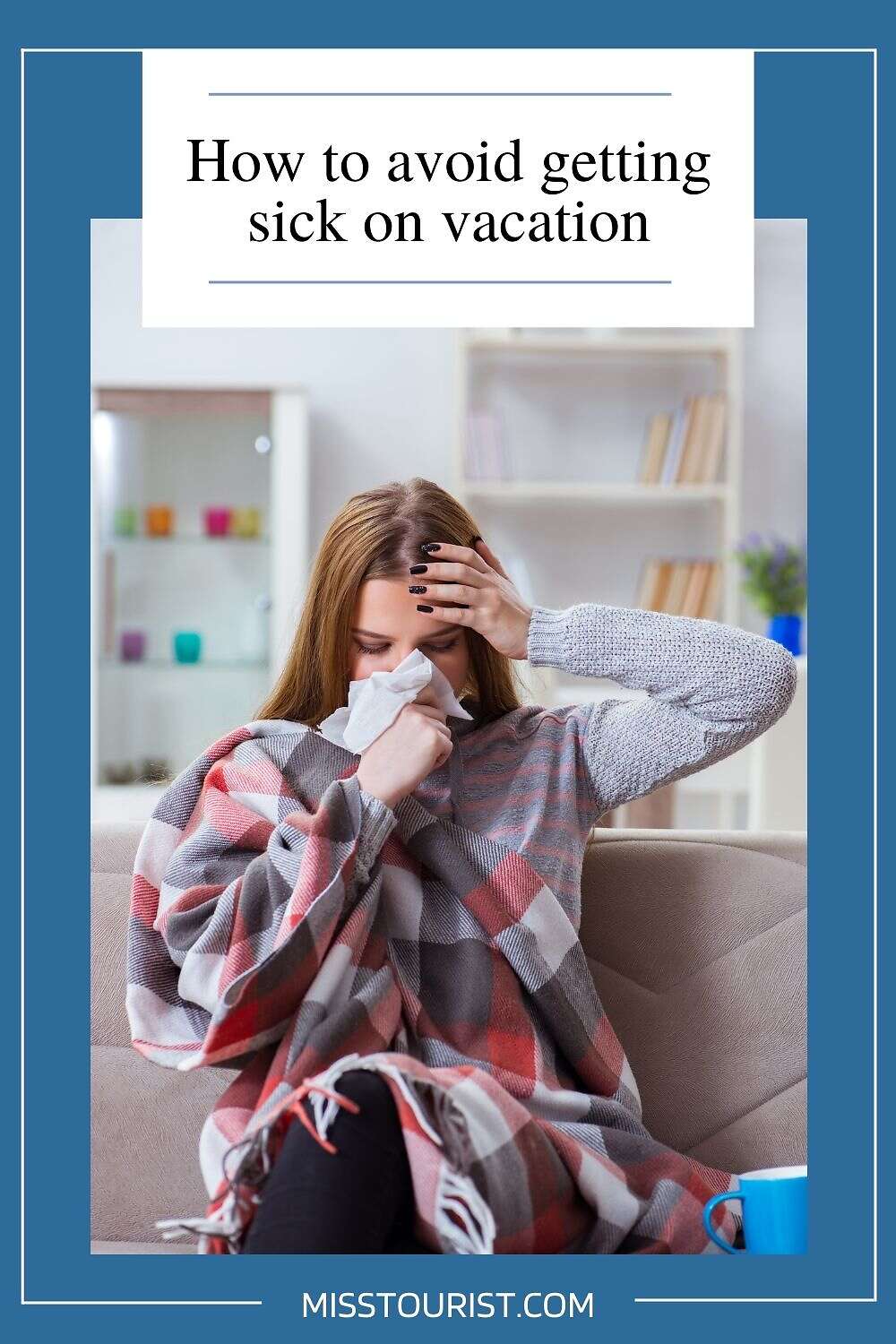
Subscribe here to get up to 35% off your accommodation for your next trip!

 Darija Stojanovic
Darija Stojanovic 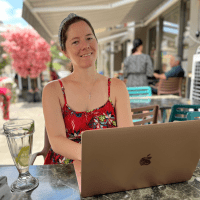







This site is protected by reCAPTCHA and the Google Privacy Policy and Terms of Service apply.